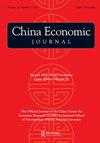The impact of financial sanctions on the international monetary system
IF 2.3
Q1 ECONOMICS
引用次数: 5
Abstract
ABSTRACT After the outbreak of the conflict between Russia and Ukraine, the United States and Europe have taken financial sanctions against Russia, which have had an important impact. The frequent use of financial sanctions has exacerbated the distrust of the dollar system in emerging markets and developing countries, and shaken the logic of the dollar and the Society for Worldwide Interbank Financial Telecommunications (SWIFT) system as public goods of the international monetary system. However, the position of the US dollar and SWIFT is still hard to change. This does not mean that the international monetary system will remain the same forever. As the willingness to hold foreign exchange reserves declines, emerging markets and developing countries will either increase their tolerance of exchange rate volatility or implement more capital account regulation. Therefore, in the trend of de-globalization in the future, the international monetary system will turn out to be more volatile.金融制裁对国际货币体系的影响
摘要俄乌冲突爆发后,美国和欧洲对俄罗斯实施金融制裁,产生了重要影响。金融制裁的频繁使用加剧了新兴市场和发展中国家对美元体系的不信任,动摇了美元和全球银行间金融电信协会作为国际货币体系公共产品的逻辑。然而,美元和SWIFT的立场仍然难以改变。这并不意味着国际货币体系将永远保持不变。随着持有外汇储备的意愿下降,新兴市场和发展中国家要么会提高对汇率波动的容忍度,要么会实施更多的资本账户监管。因此,在未来去全球化的趋势下,国际货币体系将更加动荡。
本文章由计算机程序翻译,如有差异,请以英文原文为准。
求助全文
约1分钟内获得全文
求助全文

 求助内容:
求助内容: 应助结果提醒方式:
应助结果提醒方式:


